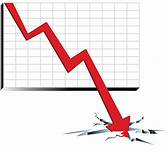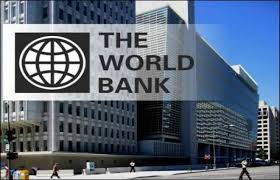‘Why Nigeria’s economic growth rate will remain in negative territory’

In the expected pace of economic recovery in the fourth quarter (Q4) of 2020, the leading indicator has reflected that Nigeria’s growth could reflect an improvement from the previous quarter but might still be contracted negatively.
The purchasing managers’ also index by PwC Nigeria shows a marginal uptick in October/November compared to the third quarter of 2020, which also aligns with the consumer and business expectation survey reported by the Central Bank of Nigeria (CBN).

PwC Nigeria’s PMI report
This assertion was disclosed in a report by PwC Nigeria, titled; Nigeria Economy Alert, Q3’2020 Report: Deepest Recession in Decades Offers Opportunity for Extraordinary Reforms.
It highlighted that against this backdrop in some sectors of the economy, the country’s economic growth rate in Q4 2020 could most likely fall between -1.5per cent and 0.5per cent, translating to a 2per cent annual contraction in 2020 from a growth of 2.3per cent in 2019.
PwC Nigeria vs IMF/World Bank projections
This growth rate is better than most outlooks for Nigeria as International Monetary Fund (IMF) predicted -4.3per cent, while World Bank predicted -3.2per cent.

“Along with most countries of the world, the Nigerian economy is technically in a recession, as real GDP contracted for the second time by 3.6per cent in Q3 2020. This implies that, on a year-on-year basis, real GDP declined by N1 trillion and N670 billion in Q2 and Q3 2020 respectively. The share of Nigeria’s real GDP loss in the period is larger than the economies of Sierra Leone, Liberia, Gambia, Lesotho, among others.

“With this contraction, Nigeria is experiencing a second economic recession in less than a decade, due to the impact of the COVID-19 pandemic on the global economy. So far in Q3 2020, except for China, other economies have recorded consecutive economic contractions, as the global economy is expected to decline by 4.4 per cent in 2020 from an uptick of 2.8 per cent in 2019, according to the IMF.
COVID-19 impact on oil prices, Nigeria’s economy
“The pandemic has exposed oil-dependent economies to the twin-shock of a bearish international oil market and disruptions to global and domestic supply chains for the movement of goods, people and services.

“In the third quarter of 2020, oil prices were less volatile compared to the previous quarter due to positive sentiments largely hinged on the expectation of further OPEC cuts; the ease of restrictions to the movement of people and goods; and the proposed economic stimulus packages in advanced economies.
“OPEC reduced its production by 7per cent from 26million barrels per day in Q2 2020 to 24mbpd in Q3 2020, while non-OPEC members increased production by 0.9per cent to 67mbpd. This shows that the position of non-OPEC members’ impacts the outlook for oil prices.”

Going forward, “OPEC foresees a 10per cent decline in production to 90mbpd in 2020 from nearly 100 mbpd in 2019, as non-OPEC players are predicted to keep supply elevated for the rest of the year.







